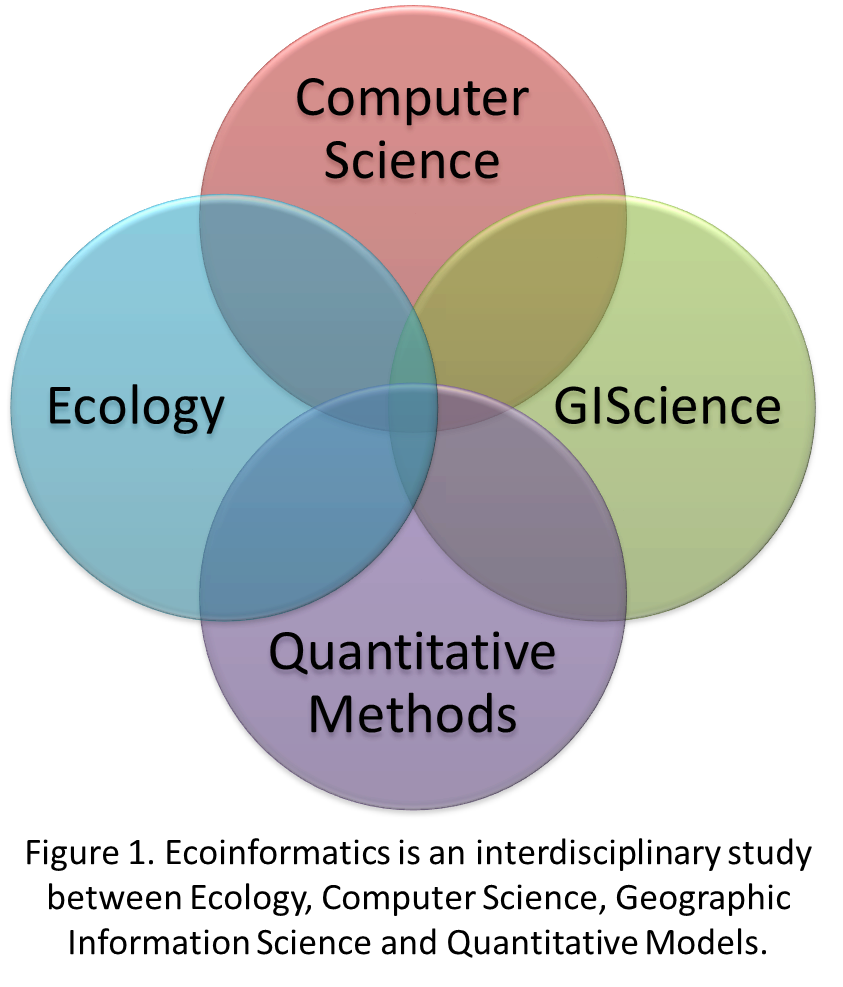What is Ecoinformatics?
Ecoinformatics, (sometimes referred to as eco-informatics or ecological informatics) is the management and analysis of ecological information and the facilitation of large-scale ecological research through the application of computer technology. Ecoinformatics is an interdisciplinary study between Ecology, Computer Sciences, Geographic Information Sciences, and Quantitative Methods (Figure 1). Recknagel (2006) described Ecoinformatics, in an editorial, as the interdisciplinary study and understanding of information processing from genomes to ecosystems, meta-information concepts for ecological data management, computational ordination, clustering and forecasting of complex ecological interactions, and facilitating informed decision making for sustainable ecosystem management. Ecoinformatics promotes novel exploitation and integration of ecological data and knowledge by means of state-of-the-art computer technology. It promotes object-oriented approaches for ecological data and model libraries, remote sensing and GIS for ecological data acquisition and visualization, bio-inspired software and hardware solutions for advanced quantitative ecology and computer design, as well as semantic webs for sharing ecological information and models.

Interested in pursuing a graduate degree?
Refer to these resources for further information:
Graduate Program in Geospatial Information Science and Technology (GIST)
Graduate Program in Ecology (Ph.D.)
Or contact Dr. Albeke

